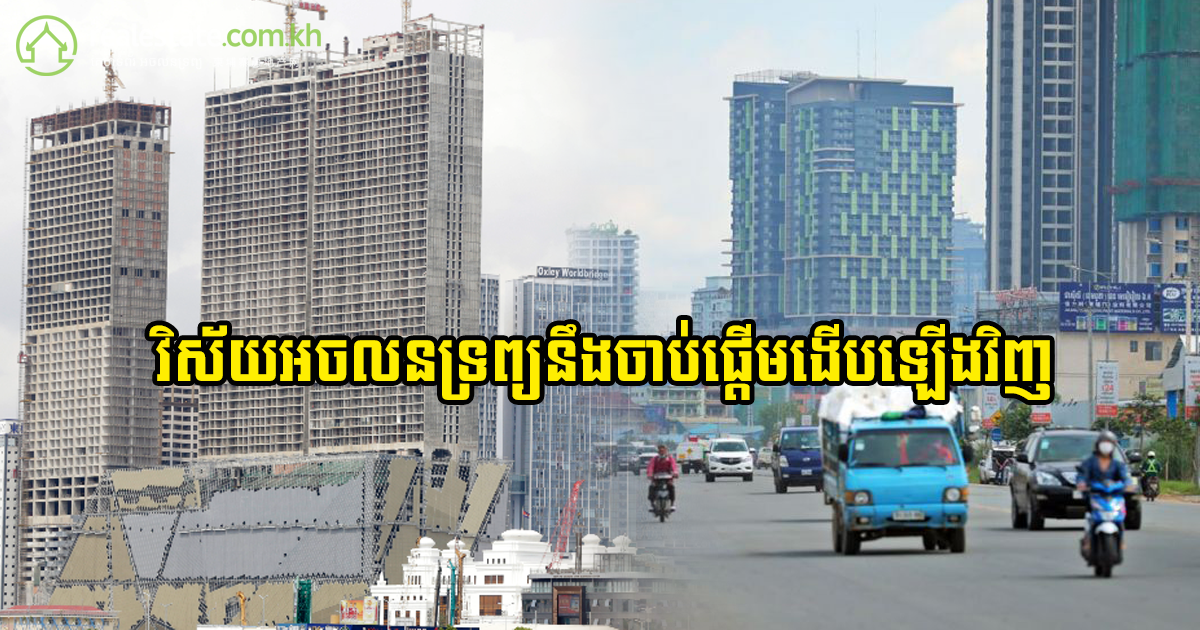Cambodia has been causing excitement in the international scene for becoming an international investment hub. And it seems to only get better. According to the Asian Development Outlook 2017 by the Asian Development Bank, strong growth is expected for the Cambodian economy in the next two years. And one of the sectors garnering great interest is the tech startup scene.
In fact, just recently, various companies born from Silicon Valley -- the world’s technological cradle -- have taken interest in the expanding market and placed investments in local startups like Khmerload.
But what does this interest in technology mean for the country’s real estate market? Realestate.com.kh gives you a brief analysis.
How will technology change the short to mid-term outlook for Cambodian real estate?
Seeing that the market is picking up, Cambodia’s technologies at the moment cannot be considered innovative as much as they are just similar to international business models. But this isn’t necessarily a bad thing because it provides most of the same benefits the technology did in other countries.
Take Exnet Taxi Cambodia for example, a solution created to improve the process of sourcing vehicles -- a service that’s very similar to international services like Uber and Grab. Similarly, 360-degree tours and virtual walkthroughs have also entered the real estate market of the country, but not before it has already made waves in the global mainstage.
For the short to mid-term perspective, this may be a prominent trend -- locals try to replicate international solutions and services while learning how to develop their own. This is because generally, introducing proven solutions on an otherwise untested market is easier than creating one from scratch since it takes less resources by eliminating the need for more extensive research. But as more trainings are provided and as the quality of the curriculum for education on the matter changes, more innovative products are bound to spring up from within the Kingdom.
A blogger in the tech scene, Tharum Bun said in a recent interview that “It’s hard to get good education in tech and digital in Cambodia.” Bun recalls, “I have a friend who graduated here, and continued to get a Masters in Japan. When she returned, she started teaching at a university here. She told me that the kind of curriculum currenlty being thaught, is ten years old. New things need to be introduced, to keep up.”
But why is there a lack of innovation in Cambodia at the moment?
Ki Chong Tran, the founder of 3d printing company ARC Hub PNH, sheds light into the situation and says, “You need someone who can think outside the box. And it’s not just about the technical skills, it’s about the attitude. We kind of had to do our own training program. In the Cambodian educational system it’s just a lot of memorization and doing what you’re told, and not really thinking independently.”
He adds, “Culturally I think there’s something there too about doing what you’re told. But we’re looking for leaders, people who are able to say, ‘Hey, I don’t think that’s right.’ And that’s very hard to find here.”
However, he qualifies, “everything is lacking here. But you can use that to your advantage.”
How will technology change the long-term outlook for Cambodian real estate then?
Even though there are a lot of things lacking in Cambodia’s technological education system, the sector is nothing new to the country. But what is worth considering is that the demographics are slowly starting to change. The millenial generation is starting to populate the different markets at a rapid pace. In a recent article created around the topic, The Phnom Penh Post explains that “the choices of millennials have implications for the housing market,“ basing it on CBRE’s “Asia Pacific Millenials: Shaping the Future of Real Estate” report which likened the youth of the Asia Pacific to each other.
The article explains that “while for many, the ultimate goal is home-ownership, spending and saving patterns dictate that most will live with their parents for longer than previous generations, and evidence suggests that 62 percent of APAC millennials not living with parents rent their home.”
So, this comes as a challenge and opportunity for developers and investors to either create more innovative homes or re-evaluate their rental strategies. This can mainly come down to the issue of convenience and affordability, with millenials always seeking new experiences and opportunities they cannot find in their backyard.
This will eventually drive newer innovations to address these types of issues, including solutions similar to the usage of Blockchain technology to democratize property ownership and to make real estate investing less expensive and more accessible to the youth. Blockchain technology also digitalizes real estate ownership. This may soon change the way ownership works for everyone in the country too.
This may also lead to the improvement of already existing technologies like virtual reality eventually moving into the realms of augmented reality and holograms.
But what about the homes themselves?
These new innovations will also mean improved development standards in the future, combining traditional elements into more modern packages and modern advertising platforms -- thereby providing an authentic and convenient experience for these future home buyers and renters.
Take the developer Borey Peng Huoth, for example. The Southeast Asia Globe mentions describes them this way, “Earning gongs for Best Housing Development (Phnom Penh) and Best Landscape Architectural Design, the developer was hailed for its use of technology and placing a premium on its relationship with consumers by ‘being the Kingdom’s first developer that has created a dedicated mobile application for its client roster.”
So, competition will be forced to step up. And when that happens, it will be an interesting sight to see.
But the greatest thing about the future is that you can gather data from the past and present to effectively foresee an outcome that is most probable. And if that’s the case, Cambodia may have an interesting future in its hands.
Find the best real estate news on Realestate.com.kh




Comments